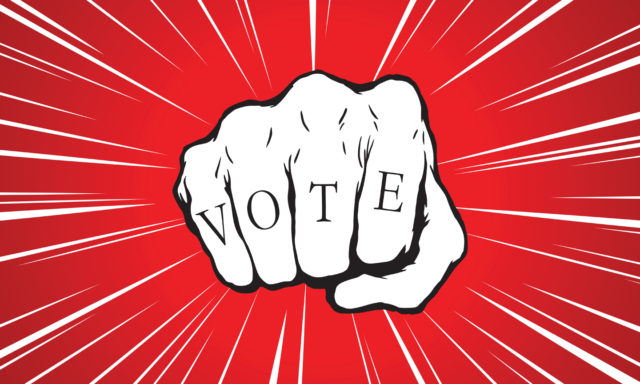
Not participating in the political process of the community is a potent choice. It is an acceptance of the status quo. A willingness to take a gamble with your future and the future of our community.
Our actions have consequences no matter where we stand in the political arena. Timothy Snyder, in his book On Tyranny: Twenty Lessons from the Twentieth Century, notes that in the politics of everyday “our words and actions, or their absence, count very much.” More than ever this year our words and actions, or the absence thereof, matter. Every election year politicians and activists implore us to vote. They remind us over and over again that our vote is our voice. It should not take a leader with a cult-like personality to get us engaged, because as the rallying cry of the 1960s feminist movement forcefully professed, the personal is political.
We need to move beyond our political apathy and empower ourselves to take our place within the politics of our community and beyond in order to solve our most pressing socio-economic issues. It is unacceptable in a first-world nation situated among other developed nations to have so few people who participate in their own political lives. During the 2016 presidential election some 138 million Americans voted, which is approximately 58.1% of our country’s eligible voting population. Consequently, over 40% of the country’s eligible voters did not vote. Closer to home, in the same year, in Boulder County 192,822 ballots were counted, out of a possible 215,378 registered voters. Therefore, 22,556 registered voters did not participate. Our ancestors have marched, bled and died for our rights to vote. And still today there are people who are fighting for their communities’ access to the ballot box. Therefore, there are no excuses for political apathy.
We all must fulfill our personal responsibility to vote, if not for ourselves, then for our community. As Congressman John Lewis once reminded us, “Freedom is the continuous action we all must take, and each generation must do its part to create an even more fair and just society.” Voters are the most important stakeholders in the political process and these are a few simple actions we all can take to ensure that we get the government of our choice: 1) register to vote; 2) learn about each candidate’s policy positions; 3) vote by mail, or in person; 4) volunteer as an election judge, poll-watcher or virtual canvasser; 5) educate others on the issues; 6) encourage neighbors and friends to vote.
But the work doesn’t end on the day after the election. Once all the ballots are counted and the new elected officials are announced, we must then reorganize in order to push for accountability and transparency, even from the very people we help put in office. Ultimately, our community’s future and our personal livelihood depend on the political choices we make every day, every week, and every two and four years.
Junie Joseph is a third year CU Law Student and Boulder City Council member.
This opinion column does not necessarily reflect the views of Boulder Weekly.














